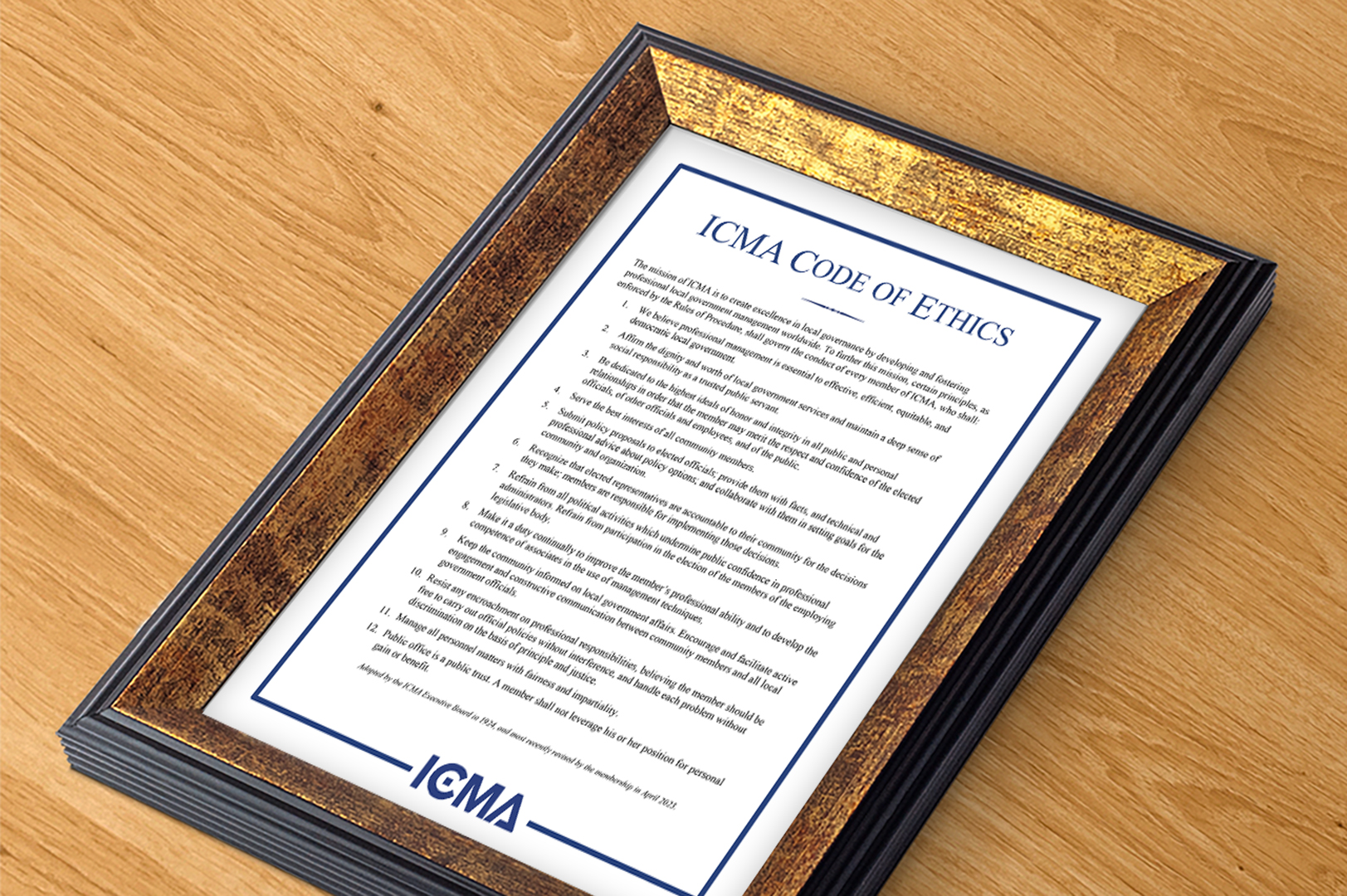
As you may be aware, former ICMA member James Freed filed a lawsuit against ICMA in retaliation for the finding that, as a city manager, his conduct violated Tenet 3 of the ICMA Code of Ethics. The findings of the Freed case are public record, as are the findings of all public censures.
These public records are intentionally limited in scope to that conduct which led to the public censure. Although sound legal guidance encourages limiting any comments from ICMA, the amount of disinformation and misinformation being disseminated requires a modicum of response so that ICMA members understand what is at stake in this case.
City/county managers have an enormous level of responsibility and authority. As such, it is essential to maintain a commitment to serving the public good and putting the public’s needs above one’s own interests. We believe that we must demonstrate a commitment to the equitable and lawful administration of government through our words and deeds in both our personal and professional lives. That is why ICMA members adopted the Code of Ethics in 1924 to guide our actions and behaviors.
For the past 100 years, adherence to this Code of Ethics has been the bedrock of ICMA membership. As part of our obligation for membership, we affirm our commitment to the ICMA Code of Ethics in much the same way as doctors, lawyers, psychologists, accountants, social workers, and so many other professions require of those who bear the title of their profession. And like those professions, the Code of Ethics is written, adopted, and enforced by fellow members of the profession. To forsake the Code of Ethics and the diligent review of alleged violations of the Code of Ethics would simply erode the very foundation upon which the role of a nonpartisan professional administrator is predicated.
As professionals, we may have disagreements about the degree to which certain behaviors violate the Code of Ethics. This is why all cases are confidentially reviewed by fellow ICMA members who comprise the Committee on Professional Conduct (CPC). And it is why there is due process for the member to address the allegations. The CPC closes a case where no violation is found to have occurred; for conduct that has violated the Code of Ethics, the CPC may issue a private censure or recommend that the ICMA Executive Board publicly censure the member. A public censure may include revocation of the Credentialed Manager designation, membership suspension, permanent bar, or expulsion. This process ensures that the issues have been fully investigated and deliberated on the established facts to reach a decision.
Censures are not arbitrary nor punitive. Rather, they are necessary to maintain accountability. The ICMA Credentialed Manager designation and membership in ICMA are respected because the requirement to adhere to the Code of Ethics provides public confidence that the individual is held to a higher standard of ethical conduct in their role as a city/county manager. And so, we must defend our right to hold ourselves accountable as ICMA members.
We understand that there may be individuals who choose not to join ICMA or affiliate state associations because they do not wish to adhere to the Code of Ethics. And yet, that is the greatest distinction between ICMA members and nonmembers in the profession. By publicly affirming our commitment to the ICMA Code of Ethics and holding ourselves accountable, we plainly demonstrate how we choose to lead and serve. That is why we vigorously defend the right of ICMA members to ensure adherence to the Code of Ethics. Without it, there is nothing separating ICMA members from those who seek the office of city/county manager simply to advance personal or political interests.
As the case progresses, the ICMA Executive Board, with guidance from legal counsel, will determine how to move forward in the best interest of the association. We must consider financial implications of defending the case, probability of potential outcomes, and most importantly, the effect upon our ability to enforce the Code of Ethics as a professional organization.
New, Reduced Membership Dues
A new, reduced dues rate is available for CAOs/ACAOs, along with additional discounts for those in smaller communities, has been implemented. Learn more and be sure to join or renew today!
